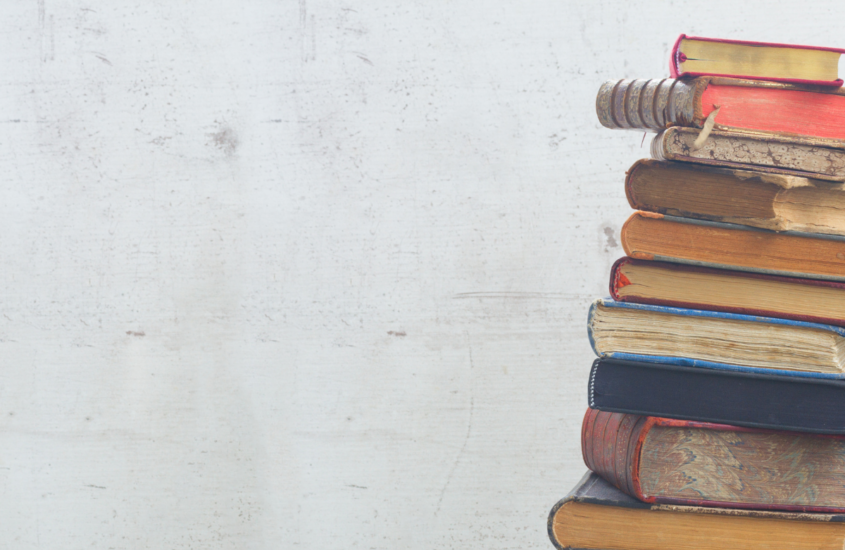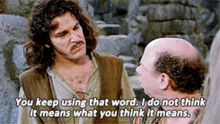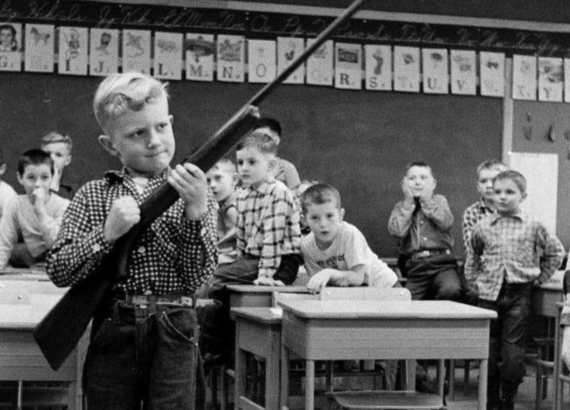Dear Joy Reid, You’re Wrong About Books
Elaine Atherholt |
Dear Joy Reid, you’re wrong about books. And, weirdly, I think you know it.
If you, dear reader, haven’t already watched the interview between Joy Reid and Tiffany Justice from Moms for Liberty, then you should take a look.
Essentially, Joy Reid is confused about why Moms for Liberty would deign to empower parents to speak up and demand that certain books be removed from school libraries. Why would they sound the alarm on graphic and explicit books so parents can do their own research? Joy asks what gives Moms for Liberty the authority to go to school boards and say “we don’t want XYZ book in our school libraries.”
Joy, darling, the answer to your question is God. God has given them the authority as the parents of the students in the school. God has ordained these parents and guardians as the keepers of their children’s souls, the protectors of their innocence, and the ultimate educators of their minds. And, since you have children of your own, you know this. I know you do.
A Scenario
Would you, Joy Reid, be happy with the following scenario:
Let’s say there was a teacher who loved horror movies and thought everyone else should love and support the horror movie genre just as much as she does. This is a major part of the teacher’s personality and the principle of the school is just as much of a horror movie junky as she is – awesome! Horror movies, after all, are an art form, they’re part of American culture, they address complicated themes and explore parts of human nature. Starting with Nosferatu in 1922, all the way down to Chucky, The Silence of the Lambs, American Psycho, The Exorcist, and The Conjuring, horror movies have held a high place in the formation and growth of Hollywood and the American cinematic portfolio.
These award-winning movies have captured audiences around the world, they’ve been translated into multiple languages, they’ve been celebrated at festivals, and the actors and directors have become household names. They are essentials of American history, art, and culture…according to the teacher.
So then one day the teacher decides to show her class of 8-year-olds, including your child, Saw III. Would you, Joy Reid, be beyond angry? Probably. And you’d be completely justified. That is your child after all. They are young, they don’t understand human nature and its nuances, the why of violence, or the concept of evil in a way that would allow them to objectively consume Saw III and not be forever damaged by what they see. In fact, they are still reeling from The Lion King, they were not prepared yet for Saw III.
As a parent, you understand this, because you chose age-appropriate books, movies, and TV shows for your own children. You knew when they were three-months-old that they couldn’t have milk. You understood the concept of your child being old enough to communicate and therefore be capable of potty training. You remember, no doubt, the talks about puberty and how it became necessary at a certain age but not before. You were there when your child became responsible enough to drive, then to vote, then to drink. You saw them at every stage of their maturity and understanding. Perhaps your children have had children of their own now—was this era of life relevant when they were infants or middle schoolers? No.
That’s what this battle against books is, Joy. It’s parents requesting that school boards, teachers, and government officials—regardless of what those individuals believe or personally love—respect the parental right to choose what extreme junk their child is exposed to and when. Not at the whim of their teachers, not at the discretion of board members who have never met their child, and not at the demand of other parents who have different standards and family culture.
Let’s keep all of this in perspective, too. Public schools are general education. Schools should do nothing but teach the basics, and leave the more shocking and troubling topics to parents.
Book Bans
In our previous article about banned books, we stated that a true and real book ban has never happened in America. And it’s true. Even cases of books being burned in America (of which there are, admittedly, a handful), it is not specified that it was government led or supported. In fact, odds are, if you wanted to buy and own the book the year it was challenged and burned, you could, and face zero consequences. (This is not so in cases in other countries.)
Throughout history, books have been challenged. Even the ALA page of “book bans” often states that books were banned in certain areas of the U.S., but doesn’t specify what that means. Was the author still allowed within that town’s city limits? Did the mayor/governor/sheriff declare that all copies of that particular book were to be burned and if anyone should be found owning that book in public or secret, they were to be jailed/fined/put to death? No. The answer to those questions is no.
So, again, some perspective: are parents banning books, or are they asking public schools (funded by tax dollars) to use discernment?
Some Things We Should Talk About Instead
Book bans have dominated news, school board meetings, etc. for some time now. But, while we scream at each other over the content of books, we leave behind some things that we should actually be talking about.
Literacy
Such as the literacy rate in America. According to the Organization for Economic Cooperation and Development, “Half of U.S. adults can’t read a book written at the 8th-grade level.” And that’s a stat from 2012/2013, well before COVID, masks, and measurable consequences of No Child Left Behind and Obama’s Every Student Succeeds Act (ESSA). See reading proficiency drops here and here.
Perhaps we should start talking more about teaching our children to read, and less time arguing over words they could never dream of pronouncing let alone understanding.
Actual Solutions
I agree that the knee-jerk reaction to a book with questionable content—especially some of the novels considered classics—should probably not be outright “banning” it (whatever that means), nor burning it, and maybe not even suing a school district. Instead, school board members, teachers, and parents should approach these things with a little bit of dignity and find ways to make public education work for everyone.
One solution might be opt-in forms. Another might be parental permission slips for certain books. Or maybe some optional, advanced classes are added for high schoolers to focus on a handful of these books, all within context, all with a transparent curriculum layout, and all above board.
Complete curriculum transparency would also be an option. I feel the high-tension reactions come when parents feel they’ve been lied to, kept in the dark, or tricked. Parents should know, from the beginning, what books their child might be required to read in their classes—and given the chance to opt out or choose an alternative.
The problem here is that we’re trying to make a very diverse group of people happy, so there will never be a perfect solution.
Education
Harry Potter has often been listed as a banned book. And people scoff and say, “how could you ban Harry Potter from schools?” But I would like to argue that the majority of books “banned” from schools have nothing to do with education, and therefore do not belong there to begin with. In fact, the majority of books in high school curricula were not written with teenagers in mind at all — they were written for adults.
And in any case, no one in their right mind could argue that Harry Potter, or Lady Chatterley’s Lover, or Slaughterhouse Five is absolutely crucial to a child’s education. For centuries, much smarter people have gone through life far more successfully than most without these texts. These books will be there when they get out of school, they aren’t needed for the topics at hand. And, side note, taking a book out of a school library (or even a handful of school libraries) does not constitute banning.

I think the conversation should turn to this: we have public libraries, pretty much any book is very easily accessed outside of schools—I mean, a lot of places give “banned” books away for free during the nationally celebrated Banned Books Week—so why don’t we make school libraries the place to find books relevant to the curriculum of that school, and all the other book resources out there can handle the rest?
I think, for this issue, and because public schools are general education, the following questions should be asked when it comes to books:
- Is this relevant to the curriculum?
- Is this necessary for a student’s success?
- Is there an alternative that would cover the same themes in a less grotesque or overt way?
- Can this book and its contents be thoroughly explored and taught in a way that this grade level will understand? Do we have time to talk about the nuance and morals, the history, any controversies and objections, and the rightness or wrongness of the events that transpire?
- Does this book warrant parental consent?
The Sexualization of Children
This is already part of the conversation, but people like Joy Reid seem more concerned with the word ban—and all of its connotations—and less concerned with the fact that there are actually pretty horrific books readily available to children. In the Joy Reid interview, Tiffany makes the point that schools typically have internet restrictions set for all school computers. Children are unable to get on social media and they can’t stumble across porn (let alone search for it) on school technology. So why are we putting books with pornographic scenes and content on the library shelves?
We should be talking about the fact that we have movie ratings, grade levels, and age divisions, but when it comes to books it seems anything goes. This just doesn’t make sense. Let’s start making sure books are age appropriate in every way. Let’s stop assuming children can handle anything thrown at them, and start acknowledging the development scales and progressions established by decades of sound research.
Joy Reid also insisted on context when talking to Tiffany Justice. Essentially she asked what the context was for the more grotesque, sexual scenes, seemingly saying that it makes a difference and justifies the existence of those scenes. But what kind of context do you need for graphic scenes? Does an explicit rape scene with all the details and trimmings on page 20 become better because you read page 1? Does it magically become age appropriate for a 7-year-old because they started at the beginning? It’s considered explicit material when a parent reads it at a meeting but it’s totally fine for a child?
Context is great for high schoolers reading classic novels, and important for understanding the core of a book’s themes in general. But no amount of context can justify explicit sexual content in books “written for” elementary and middle schoolers.
Conclusion
Tiffany should have brought the conversation back around to the fact that it’s not a “book ban”, it’s parents using discernment and asking a PUBLIC school to teach and focus on GENERAL topics. If you want your child to read explicit material as an extracurricular that’s up to you, but a school has to find a middle ground and they do that by listening to what the parents they serve want.
Where there is controversial material, there will always be someone to oppose it. And odds are, they have good reason to. Parents, for example, may not want their 16-year-old to be required to read A Clockwork Orange, they may object to their elementary schooler reading a book that describes, in detail, various sex positions and kinks. It’s probably not a good idea to introduce middle schoolers to the concept of rape before first covering the basics and consequences of sex, and making sure they understand how law, justice, and good and evil work. Whatever the scale of learning is, it’s there for a reason, because a person’s understanding of the world is ever-growing as the person matures.
So, Joy Reid, you’re wrong about books. I know you know you’re wrong. Just because it’s printed on nice paper, bound, and awarded some arbitrary literary prize, does not mean it’s essential to the development and education of a human. Nor does it grant it immunity from criticism.
The same decisions parents and the members of Moms for Liberty are making for their children, you’ve made for your own. Additionally, public schools are designed for the public, they serve huge and varied groups of people, and they are meant to provide a basic education. If a book seems inappropriate, there’s nothing wrong with setting it aside and excluding it from a public school library or curriculum. There’s no sin in discernment, but there’s absolutely a sin in damaging a child’s innocence and leading them astray.
Note: We are not affiliated with Moms for Liberty, but will always defend parents rights!






